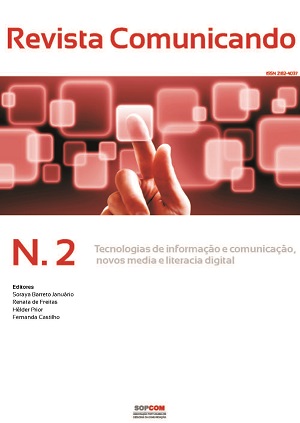Journalism in Conflict: Is Impartiality Possible?
DOI:
https://doi.org/10.58050/comunicando.v2i1.132Keywords:
Journalism, Truth, Objectivity, Language, ConflictAbstract
Nowadays, digital journalism works at a speed never seen in History. If, before, journalists had time to check sources, observe thoroughly events and write with less pressure, today, journalism by the second can make professionals be the best or the worst in their field. When in conflict, the role of the journalist embedded in the opposed context is even more complex and requires different concern and attention. Language, a journalist's work tool, reflects empathies and tendencies that should not be allowed in a journalism guided by truth and objectivity. Sometimes, even unconsciously, without having time to check and review, news published in newspapers in a context of conflict, end up fanning the flames and encouraging differences. Impartiality is compromised. Northern Ireland, stage for centuries of animosity between catholics/republicans and protestants/unionists, sometimes more or less stable, provided us the investigation corpus. Analizing the discourse of two online newspapers, with different empathies (though not publicly assumed), we will see if the languaged used reflects that same empathy and if different stages of conflict lead to different ways of regarding an event.
Downloads
Published
How to Cite
Issue
Section
License
The authors retain the copyright, but grant Revista Comunicando the right of first publication. The work will be licensed under a Creative Commons License - Attribution 4.0 International.


